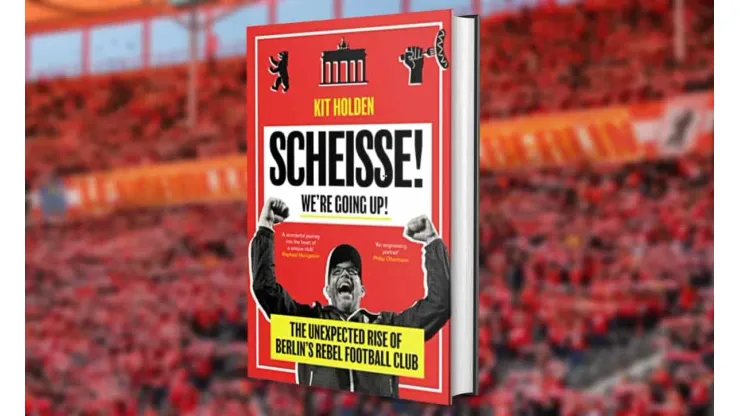
Berlin is an interesting place.
I remember my first visit a few years back when I went for a work conference. My first reaction was how big of a city it was. In many ways, it felt like a city in Texas: sprawled out, impossible to see all of it, and full of different zones and neighborhoods. The only connectors are a city name and not much else.
Of course, Berlin’s history is the reason, geographically speaking, the city is the way it is. The reinvention or exploration of what it means to be a Berliner mirrors in some ways the exploration of what it means to be German. Even three decades after the fall of The Wall, Berlin is still trying to find itself.
Union Berlin is one such face of the city. The club, which joined the top flight in 2019/20, held a reputation as a counter-cultural club. While not quite as hipster as FC St. Pauli, Union Berlin has gained attention from their fans, atmosphere, and ethos. It separates the club from its German counterparts, including city rivals Hertha. Also, for note, Union is pronounced OON-yon Berlin, not YOUN-yon.
It is easy to lump Union Berlin into a box striving to be hip and cool. Many people try to do the same to Berlin as a city with its music or club scene. Yet, this is overly simplistic. Union, like Berlin and Germany at large, appear to be one thing at first glance. But, in reality, Union Berlin is a club built upon a swirling current of cultural, historical and personal contradictions.
Union Berlin book
Journalist Kit Holden has a new book delving into Union Berlin. The book, titled Scheisse! We’re Going Up! The Unexpected Rise of Berlin’s Rebel Football Club, describes the club without linear storytelling. Nor does it use fan perspective, like other soccer books. Instead, it weaves multiple fans’ experiences with a hard look at the club throughout the decades. Holden structures the book almost as vignettes introducing a lesson. You hear from a fan or interested person who shares their perspective on a key event in the club’s “life.” Then, Holden provides analysis of what that moment means in a larger context.
Historic club
The book begins during the Cold War. The club’s elongated history goes back earlier. However, this is where the true Union Berlin story begins.
Union Berlin became a counterweight to BFC Dynamo, which was supported by state police leadership. Union Berlin was the soccer club where people dissatisfied with the government or state system could act out against it within the context of sports. This really began the mythos of the club as a countercultural club. As the book points out, this gets more complicated.
The club was run by officials with close government ties, just not the Stasi. So, technically, the club was not an outsider club, just not run by the most reprehensible people. This is a basic example of contradictions the book points out to show that being a club with a different culture is not as easy as it seems.
Holden organizes chapters along the club’s major highlights. For example, fan volunteers revamped the stadium. Also, Union started a Christmas carol tradition inside the stadium. Finally, promotion toe the Bundesliga is the greatest sporting moment for the club. These chapters are excellent descriptions of what these events mean to the club and fans. Each includes reflections on what the larger Berlin and Germany societies experience. Holden does an excellent job of balancing telling a fascinating story about a unique club without shying away from the struggles of maintaining that experience and being true to the club’s values.
The beauty of the Union Berlin book
The Amazon description of the book says this is for people who like Raphael Honigstein’s writings. I respectfully disagree.
To condense this as a book about German soccer is misleading. This book is deeper, about how a sports team or soccer club can keep its soul in the modern world or, an even harder question to answer, whether that soul is worth keeping. Holden writes a masterful story that is not just a fan story or history or analysis of a club. This book goes two steps beyond that.
Readers may accuse me of being overdramatic, but I feel compelled to be a little dramatic. This kind of book is hard to write. Others have tried, and failed, by coming off as too moralistic or too supportive of their source. Holden has an interest for Union Berlin, but he is unafraid to pick the scabs that a less talented writer would ignore.
This book is available this week in the U.S. and it is a must-include in a soccer fan’s library. This is especially true as Union Berlin continues to thrive in the Bundesliga, raising questions about how it can maintain its anti-corporate branding as the need for more investment increases. Holden’s book is one of my favorites I’ve read this year and asks some tough questions not just of Union Berlin but us as soccer fans.
200+ Channels With Sports & News
- Starting price: $33/mo. for fubo Latino Package
- Watch Premier League, Liga MX & Copa Libertadores
The New Home of MLS
- Price: $14.99/mo. for MLS Season Pass
- Watch every MLS game including playoffs & Leagues Cup
Many Sports & ESPN Originals
- Price: $10.99/mo. (or get ESPN+, Hulu & Disney+ for $14.99/mo.)
- Features Bundesliga, LaLiga, NWSL, & USL
2,000+ soccer games per year
- Price: $7.99/mo
- Features Champions League, Serie A, Europa League & EFL
175 Premier League Games & PL TV
- Starting price: $7.99/mo. for Peacock Premium
- Watch 175 exclusive EPL games per season